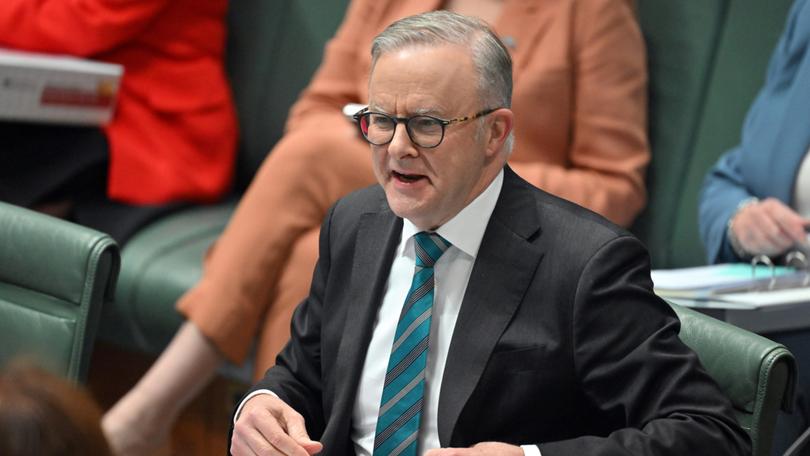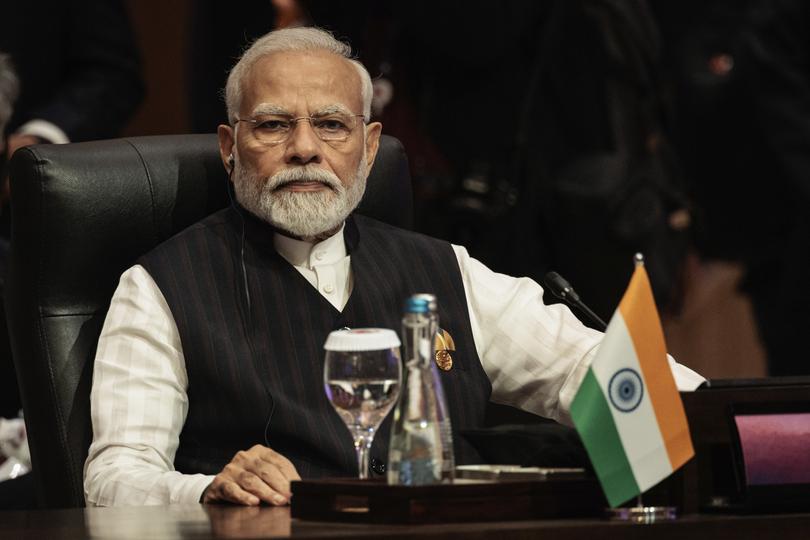Australia to expand HPV vaccine program to help protect millions across Pacific nation from cervical cancer
Australia will help to protect millions of women across Pacific nations from cervical cancer by expanding the HPV vaccine program with a funding injection of almost $30 million.

Australia will help to protect millions of women across Pacific nations from cervical cancer by expanding the HPV vaccine program with a funding injection of almost $30 million as part of a commitment via the Quad.
Prime Minister Anthony Albanese will announce the pledge alongside US President Joe Biden at the unveiling of the Quad Cancer Moonshot initiative on Saturday evening (local time) in Delaware.
Australia is on track to become the first country to eliminate cervical cancer thanks to the HPV vaccine developed by Queensland scientist Ian Frazer.
Sign up to The Nightly's newsletters.
Get the first look at the digital newspaper, curated daily stories and breaking headlines delivered to your inbox.
By continuing you agree to our Terms and Privacy Policy.Now it will expand a vaccination program across the Indo-Pacific, building on work already underway in Papua New Guinea and Vanuatu through the Cancer Council and Minderoo Foundation.
Mr Albanese says the scheme will now expand to Malaysia, East Timor, Solomon Islands, Tuvalu, Fiji and Nauru.
The Government is putting up $16.5 million and Minderoo will contribute $13.1 million, on top of the $8.6 million it has already given the scheme.
Indian Prime Minister Narendra Modi is tipped to commit to making and distributing the vaccines while Japan’s leader Fumio Kishida will promise to provide technological infrastructure and the US to use its naval hospital ships to conduct cervical cancer screening and deliver vaccines to remote island nations.

A quarter of all cervical cancer cases occur in Indo-Pacific countries and women in the area die from the disease at 13 times the rate of Australian women.
“These people are not numbers — they are our neighbours, members of our Pacific family. And we are stepping forward to help,” Mr Albanese will say at the announcement, according to a draft of his speech.
“This is personal for the President and for Dr Biden. It is personal for all of us.
“Because in our nations, as in every part of the world — cancer casts its shadow on the lives of our citizens and our loved ones.”
He says the spirit of the cancer moonshot draws on its namesake program, John F Kennedy’s bid to send astronauts to the moon, which Mr Albanese notes is a choice the country made to do not because it was easy but because it was hard.
“All of us know that curing cancer, defeating it once and for all, will be hard,” he will say.
“But not as hard as the lonely, exhausting, physical and emotional ordeal of diagnosis and treatment. And never as hard as losing the people we love.”
Mr Biden launched the cancer moonshot when vice-president in 2016 and reinvigorated it in 2022, pumping tens of millions of dollars into research and services with the aim of halving cancer deaths within 25 years, and improving the experience of people and families who are living with or who have survived cancer.
His eldest son, Beau, died from brain cancer in 2015.
Last year, Mr Albanese’s partner Jodie Haydon toured a clinical centre near Washington DC with Jill Biden to see cancer research and learn about progress being made on paediatric cancers as part of the moonshot initiative.
The US Embassy launched a US-Australia cancer moonshot initiative in February that seeks to strengthen connections between medical research institutions in the two countries.
US Ambassador to Australia Caroline Kennedy has also highlighted the work, taking part in the cross-country Shitbox Rally to raise $340,000 for the Cancer Council.
Minderoo founder Andrew Forrest said the dream was an Indo-Pacific and a world where cervical cancer was history.
“It is the role of philanthropy and government to work in partnership to take advances in health to scale, democratising access to lifesaving health innovations,” he said.

